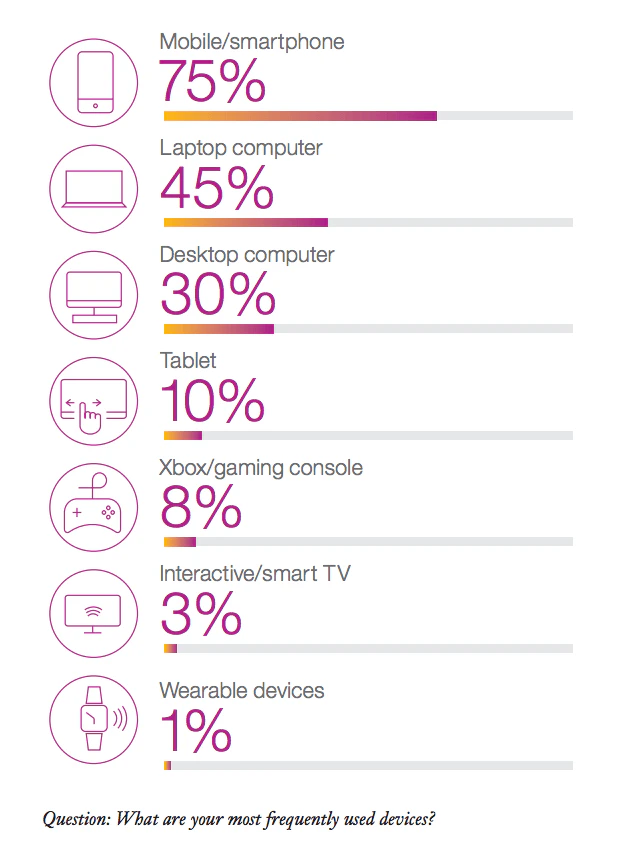According to a recent Robert Half research report, about one-quarter of CFOs believe their organizations are undertaking more entry-level campus recruiting than they were five years ago.
In another HBR research, 84% of companies understand and accept the necessity of campus hiring.
With these figures, it is evident that the employment market is more reliant on young talent than ever before. The question is — will you join the conflict or remain a regular passive player?
A recent survey found that 56% of interns eventually become full-time employees.
Campus recruiting allows you to engage with young talent while also advertising your company perks, proving to be a great method for identifying your best candidates while keeping recruitment costs down.
Let us see how!
Five Tips for Effective Campus Recruitment
1) Level Up Your A-game by First Understanding Students
The impact of COVID-19 Pandemic is pushing more commercial activities online, thus it is without a doubt a major issue for companies to hire people who can operate in the virtual world and about 3 billion people will be using the internet globally by 2023.
This has created an urgency for recruiters to look for digitally savvy candidates, and who can be better than Gen-Z?
This generation has only recently graduated from college and is already influencing how you hire and recruit. Being able to hire them means attracting and maintaining the largest generation of employees ever born in the United States.

Source: Cisco
How can you double down on your campus recruitment to attract them?
- You need to maintain good partnerships with schools and institutions l for connecting with Gen Z talent.
- You need to improve productivity by precisely measuring KPIs and implementing best practices for recruitment events.
- When it comes to the things that matter most at work, Generation Z has a new set of priorities. So before they submit their applications, invite them to join your talent community, and then share information based on the interests they have specified.
- Send candidates updates frequently throughout the hiring process so they are aware of their status. Send a tiny care package that talks to your new employee when the time comes to extend an offer.
The fast-evolving technology environment has caused society to change.
Students of the Gen-Z generation have vastly distinct mentalities and dispositions than students in other age groups. The more recent Gen-Z cohort in particular is better equipped to understand and apply technical concepts.
Instead of following the conventional route, recruiters should notice that these kids are far more self-assured and driven to make a difference than other students. To create an effective hiring strategy, this is essential.
2) Plan Out a Clear Hiring Strategy to Access Talent Communities
Having a clear campus recruitment strategy in place before you begin hiring is crucial. Make sure your strategy was developed with college recruitment in mind, not general employment.
A shared strategy will make it much more difficult to find the right applicant because both of these processes are dissimilar from one another.
You might inquire about the past with younger recruits, but it always makes more sense to inquire about goals and the future with students. Without the right interviewer, you might not find a brilliant candidate and lots of important questions won’t get answered.
A student who has the required skills but plans to quit the company in a year, for example, would not be the best hire for long-term employment. A qualified interviewer will professionally probe an applicant to assess their suitability for the role and find out about their long-term objectives.
As a result, you or the party hiring the person must know what to ask about and how to interact with children.
3) Make Sure You Have the Right People on Your Recruitment Team
The importance of a company’s online presence is growing as social media usage increases. Social media platforms have evolved into avenues via which businesses develop their brands. Companies need to connect with college graduates not only online but also on campuses.
One of the worst mistakes a business can make is to delay becoming digital, particularly in light of the COVID-19 pandemic and how students have adapted to distance learning.
It would be beneficial for interested graduates to learn more about companies if they have a digital presence, such as a website or social media account, that enables potential candidates to gauge their work culture and branding and understand what it is like to work there.
This is especially important as companies shift to attending virtual career fairs, which has seen a sharp rise in fall 2020.
According to a recent survey by IBM’s Institute for Business Value, Gen Zs prefer smartphones above other devices. About 75% of the 15,600 Generation Z in the world indicated they spend most of their waking hours on their smartphones. 25% of respondents use their smartphones for more than five hours every day to access the internet.

Due to the young generation’s extreme connectivity, it is simple for like-minded people to establish talent communities. On social media sites like LinkedIn and Twitter, talent communities are already starting to appear in 2021. Employers who are trying to engage with young talent shouldn’t ever give these websites out.
4) Providing Internship Opportunities is a Great Strategy for Identifying Budding Talent
One of the best ways to assess applicants’ suitability before hiring them is to offer them an internship. The student and your company will be able to collaborate and gain an understanding of the environment through internship roles, which do not carry the same responsibilities as full-time employment.
According to a study, college graduates who have recently joined a company are more likely to stick around in the long run.
An internship is especially important for students because they are much more likely to complete one than professionals with more experience. Try transitioning to an internship or job offer role if you’re having problems hiring.
Nevertheless, if you want to do this, be sure you still provide a rewarding position. It is unlikely that many students will be interested if, for instance, you offer an unpaid internship that requires 10 hours of labor every day. To attract the applicants you’re searching for, make sure your internship matches the requirements of the position.
Companies also increase their employee retention rates by providing internships and entry-level positions. One notable example is TD Business Banking, which has a retention rate of 98.6% for personnel made between 2009 and 2013 thanks to efficient campus recruiting tactics.
When 55.3% of young graduates leave their first employment within a year, having a strong retention rate is important. While job churn is a common occurrence for young professionals, businesses might increase retention and save money by implementing campus recruiting strategies that provide college students the chance to explore occupations, acquire new skills, and make use of their knowledge.
5) Leverage Virtual Career Fairs and Video Interviews
The Covid 19 Pandemic caused the recruitment industry to adopt a new method of talent acquisition. The Zoom meeting app peaked at 1.7 million daily active users by the end of November 2020.
These recruiting solutions have established their legitimacy as more than a specialized industry after a year of establishing virtual contacts. These solutions are a feasible option in any campaign, regardless of geographic constraints, thanks to advantages like recruitment cost savings and time savings.
The fact that most students are seeking employment is one of the biggest barriers to recruiting them. This is helpful, but it also suggests that buyers may quickly switch between offers according to their preferences.
Now that you’ve considered all the benefits that hiring graduates from campus might provide for your business, it’s time for you to consider your options and decide.
Would you like to actively participate in the talent war by developing a strong campus recruitment strategy, or would you rather remain a spectator and wait for the right candidate to discover you?
Recruiters must act quickly to onboard the ideal candidate. However, if you take too long, they can choose a better offer and accept it.
Reach out to Benchpoint, a healthcare IT recruiters, to reach your hiring goals as a campus recruiter.
Your campus recruiting approach should be substantially more successful as a result of the suggestions and techniques provided by us.
We will help you carefully to test out several approaches to find which one best fits your hiring procedure.
